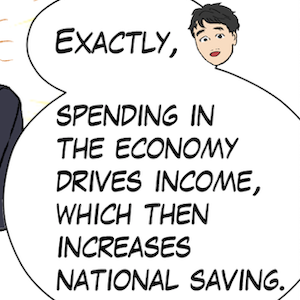Today, I discuss a recent paper from the Bank of Japan’s Research and Studies series that focused on how much attention central banks around the world give to climate change and sustainability and how they interpret those challenges within their policy frameworks. The interesting result is that when there is an explicit mandate given to the central bank to consider these issues, the policy responses are framed quite differently and are oriented towards solutions, whereas otherwise, the narratives are about how climate change will impact on inflation. In the latter case, the central banks do not see their role as being part of the solution. Rather, they threaten harsher monetary policy action to deal with inflation. I also consider the most recent US inflation data. Finally, some live music from my time in Kyoto this year.


